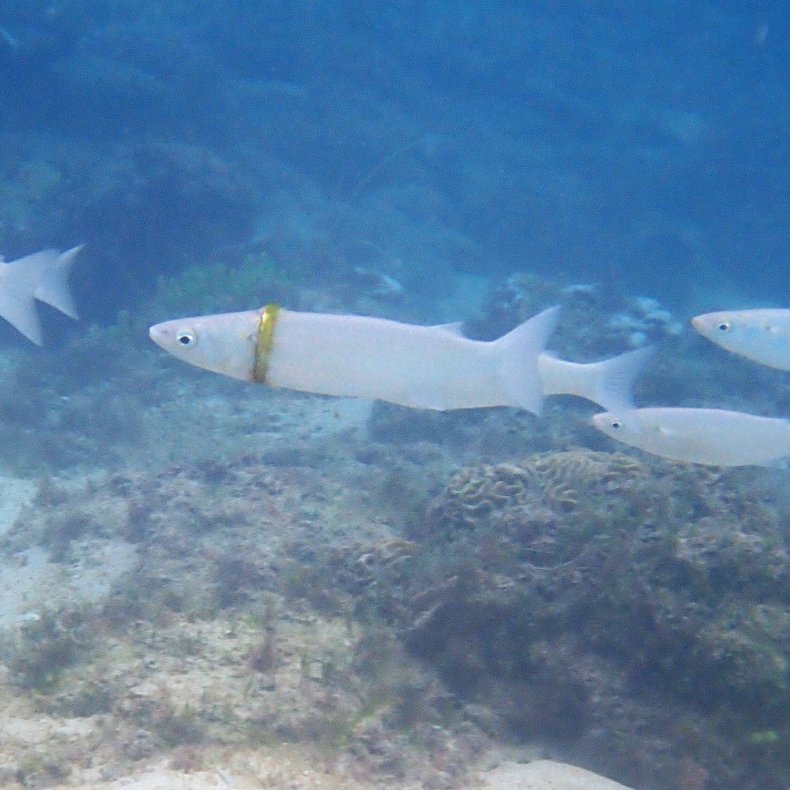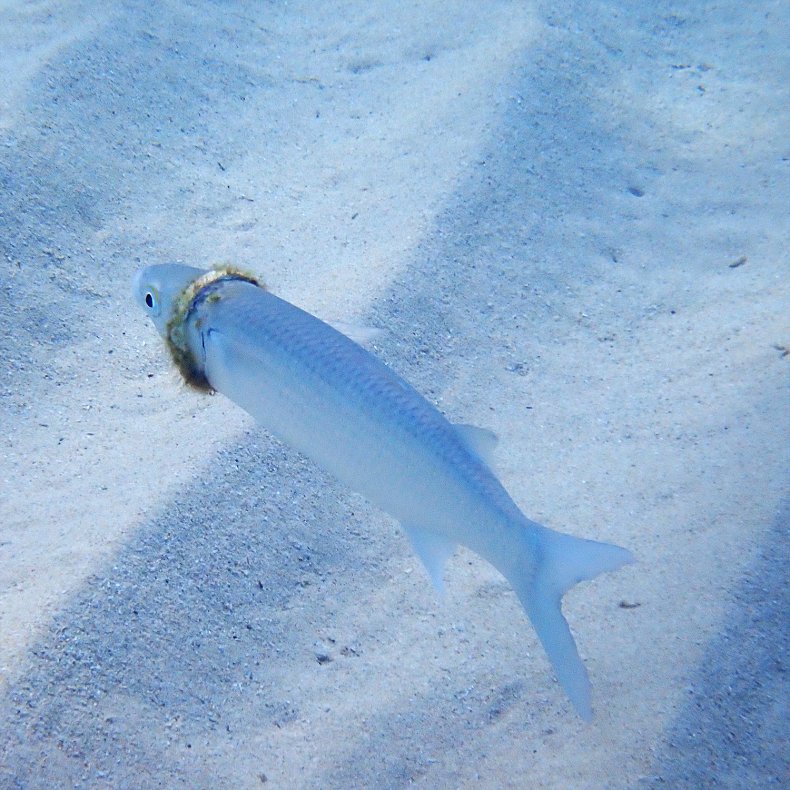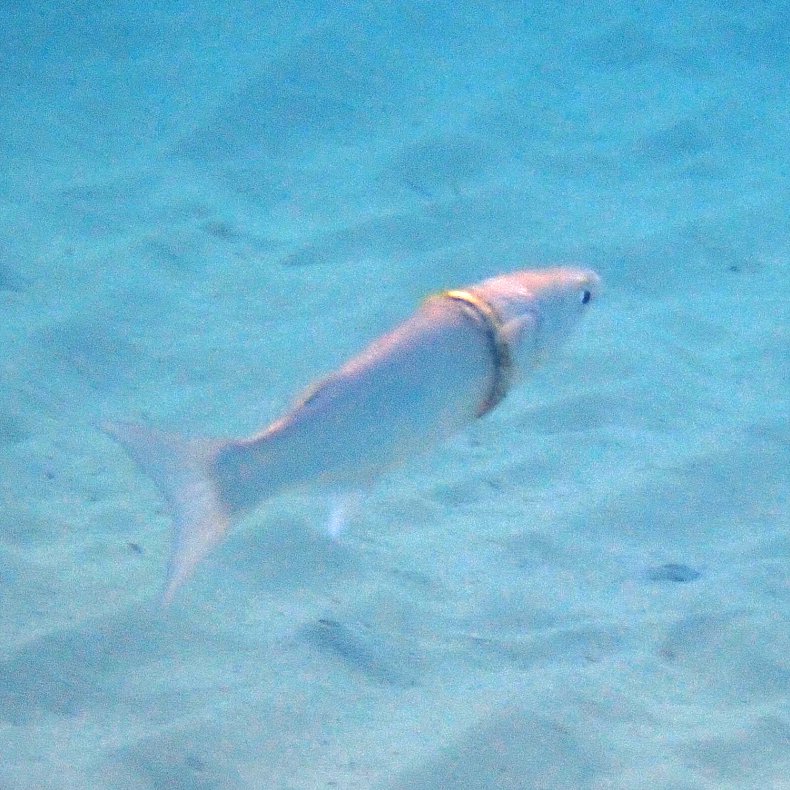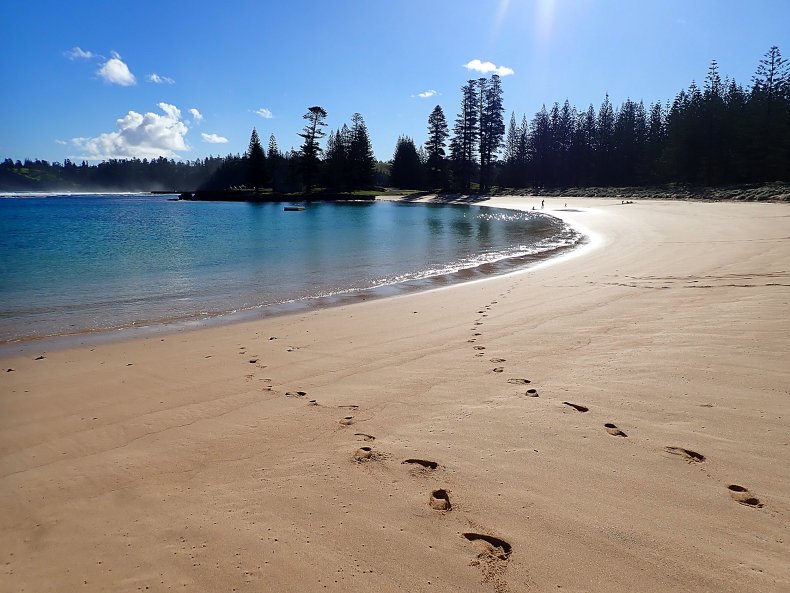Fish With Lost Wedding Ring Wrapped Around Body Spotted by Snorkeler
A snorkeler made an extraordinary discovery when she spotted a fish with a wedding band wrapped around its neck.
Susan Prior was swimming in the waters of Norfolk Island, off the east coast of Australia, when she spotted a gold band lodged around the body of a mullet fish on Monday.
Unbeknown to the Norfolk Island local, the ring belonged to Nathan Reeves who lost the piece of jewelry while swimming at Emily Bay with his wife Suzie Quintal over Christmas.
Believing the ring might be of value, Prior took to her local Norfolk Island Community Classifieds page in a bid to track down the possible owner.

"I recalled that someone had posted on our local community social media pages about a large man's wedding ring that had gone missing in the bay earlier this year, so I decided to see if I could find the possible owner," Prior said. "It didn't take long for my suspicion to be confirmed; we now have a poor mullet weighed down with someone's (expensive) gold wedding ring."
A short while later, she was able to find the couple who had searched high and low for the missing ring.
Speaking to Newsweek, Prior said the ring most probably became lodged around the body of the fish when the creature was seeking food from the ocean floor.


"Sand mullets feed by snuffling through sandy bottoms," she explained. "So a ring, plastic or otherwise would just flip over its head and lodge there."
Prior hopes to catch the fish in a net so she can gently remove the ring before finally handing it over to the relieved couple.
"It is very skittish and keeps on the edge of the school," she said. "We need to get quite a few of us in there to corral it and then use a throw net to try and catch it. It really is going to be difficult."
Prior said she often sees fish caught in plastic rings from discarded juice and milk bottles but had not come across one adorning such an expensive collar.
"Most of the rings that get caught by these fish are the plastic ones that go around the tops of juice and other liquids that come in plastic bottles," she wrote over NorfolkIslandReef.com.au, a site she set up to capture the marine life in the region and to promote the importance of keeping the water pollution-free. "You have to prise them off the neck of the bottle and then snip them to prevent stray ones ending up like this. Sadly, those of us who swim regularly see this far too often."
Reeves and his wife are now anxiously waiting to hear if the ring has been retrieved before they hope to return to Norfolk Island.


